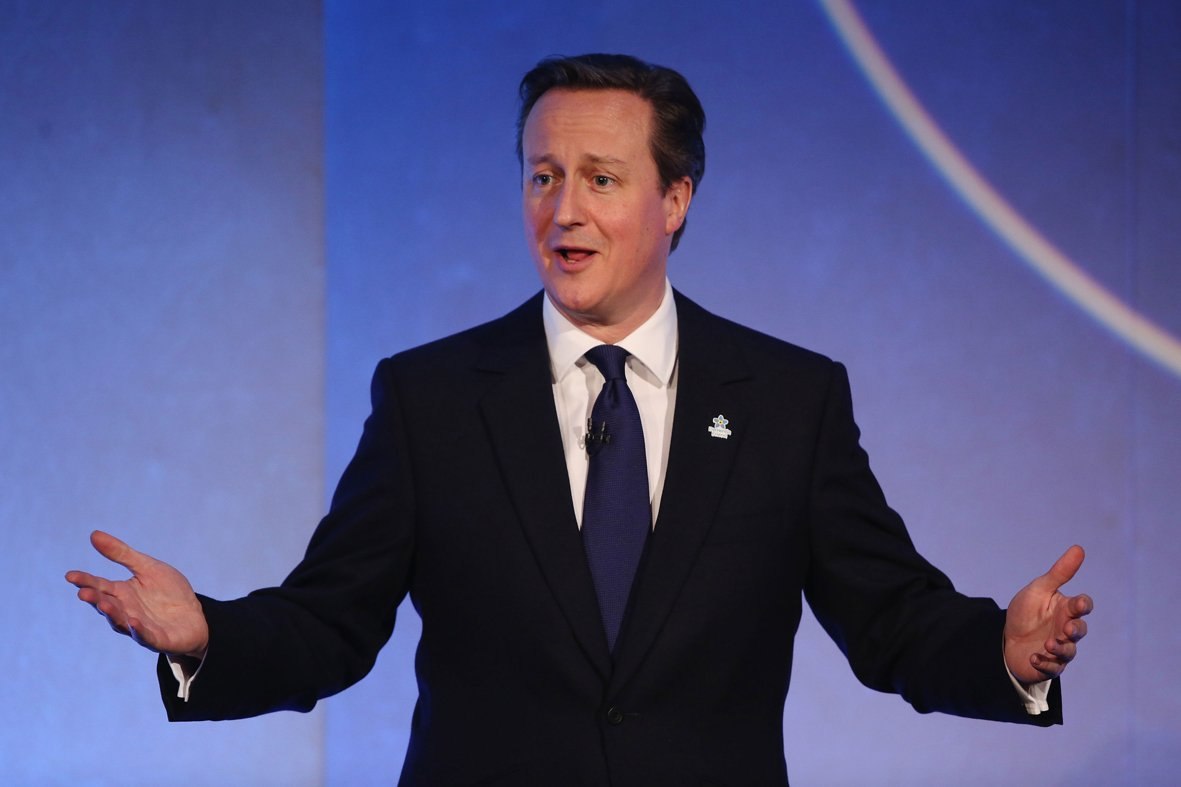David Cameron has startled the political world by announcing that he does not want to serve as prime minister for more than two terms.
His opponents have accused him, of arrogance and presumption. But it has also unnerved his own supporters who fear it could undermine the Conservative Party’s general election campaign. So was he wise to say what he said? And what are the implications not just for the impending election but also for the way the country is governed?
The Prime Minister made his remarks in an informal interview in the kitchen of his constituency home in Oxfordshire by the BBC’s deputy political editor, James Landale. Mr Landale said afterwards that he had asked the question about how long he wanted to go on speculatively rather than as the result of a tip off from Downing Street. His fishing expedition netted the fish.
Mr Cameron said: “I’ve said I’ll stand for a full second term. But I think after that it will be time for new leadership. Terms are like Shredded Wheat: two are wonderful but three might just be too many.”
What seems to have been in the Prime Minister’s mind is the wish to avoid the fate of his predecessor, Margaret Thatcher. Back in 1987, when she had already been in Downing Street for eight years, she said she wanted “to go on and on”. The remark sent a chill through those who thought the country had already had enough of her and were beginning to despair of ever getting rid of her. But it also alarmed many on her own side who were beginning to fear that the longer she remained in office, the more her political judgment would be blunted and the greater the risk that she would succumb to political hubris.
Sure enough, the period after the 1987 election saw her introduce the poll tax and led, by 1989, to one of her own backbenchers saying she was now “off her trolley”. She had to be forced out of Downing Street against her will the following year.
In his interview, Mr Cameron seemed to be referring to this when he said: “I’m not saying all prime ministers necessarily, definitely go mad, or even go mad at the same rate…”. He implied that he would like to get out before he went mad himself and limiting himself to two terms in office would be the way to do it.
His opponents seized on it. Douglas Alexander, the chair of Labour’s general election strategy, said that it was “typically arrogant” of the Prime Minister and a Liberal Democrat spokesman said it was “incredibly presumptuous” of him. Their point was that since the British public had yet to give their verdict on Mr Cameron’s first term of office it was rather taking things for granted for him to speculate about whether or not he should offer them the chance of giving him a third.
What alarmed his own side was the effect the remark might have on the impending election not least because all the polls indicate he has a toughj fight on his hands. Many believe that by acknowledging he already has leaving office on his mind will dilute the message that he and his team are a hundred per cent committed to winning power and using it. Some of his opponents have argued that his remark reinforced something they have been claiming about Mr Cameron for some time: that what really motivates him is not using power to change the world but simply holding the office and being able to claim that he had made it to being prime minister.
But the Prime Minister’s friends hit the airwaves in his defence. Michael Gove, the Chief Whip, said that his remark was no more than “a statement of the bleeding obvious” and the Defence Secretary, Michael Fallon, added: “There is a shelf-life to any politician: nobody is absolutely indispensable.”
Mr Gove went further and said the Prime Minister’s readiness to give a straight question a straight answer would help the Tories’ election campaign. He said: “it reinforces in everyone’s mind the fact that we have, as our prime minister, a normal, sane, decent guy who is in politics for the right reasons – he’s not in it for glory, ego or wealth.”
Mr Cameron himself had tried to dispel the idea that he was more interested in holding office than in using power by saying that he wanted another term in Downing Street in order to complete his programme, especially with regard to the economy, education and welfare reform. And that’s why, he said, he wanted to serve a “full” term. But many commentators believe he has made this much more difficult for himself by being so explicit about giving up at the end of it.
They argue that once a political leader has publicly entertained notions of leaving office he or she loses authority and becomes a lame duck. The political world turns its attention to the issue of who will succeed to the top job. Mr Cameron even contributed to this by speculating about his successor. He said he was surrounded by very able people and specifically referred to Theresa May, George Osborne and Boris Johnson.
What often happens in this situation is that the ambitious younger Turks stop doing what their departing leader might want and instead curry favour with whoever might be the next boss. Once a prime minister finds himself in this position, pressure starts to be exerted to quit early. That is what happened to Tony Blair. He announced before the 2005 election that he would not fight a fourth election after it as Labour leader and Prime Minister but his authority was so undermined by the announcement that he was forced out of office in 2007, three years before the next election needed to be called.The same may well now happen to David Cameron.
There is another reason why he may not be able to fulfil his intention of serving a “full” term if he is re-elected in May. A new leader will have to be elected to head the Tory campaign in 2020 and that new Tory leader will have to be in office well in advance in order to establish his or her credentials with the voters. But if Mr Cameron were to cling on to the premiership right to the end there would, in effect, be two Conservative leaders in office at once, a situation few think is tenable.
Mr Gove tried to brush aside such concerns by pointing to the United States where an incumbent president stays in power to the end of his term even after his successor has been elected. But America has a very different constitution to ours. Presidents cannot by law serve in office for more than two terms, are not the leader of their party in Congress and come to power through an election held solely with the purpose of choosing a president. Here a prime minister is the leader of the party that wins the most seats in parliamentary elections and can stay prime minister as long as that party keeps winning a majority and sticks with its leader.
Some observers think we are moving, willy-nilly, towards a more American system. The Fixed Term Parliaments Act, brought in by the coalition in 2010, has already removed from the prime minister the power to choose the date of the election and fixed the date in perpetuity, as the American constitution does. Furthermore, many people believe we have been moving towards what is, in effect, a presidential system in which general elections focus more and more on the candidates for prime minister rather than the parties themselves. Hence all the recent fuss about the leaders’ debates. Now that Mr Cameron has all but argued that prime ministers should not serve for more than two terms might it be time to start formalising these developments?
What’s your view about all thjis? Do you agree with Mr Cameron’s opponents that it shows him to be arrogant and presumptuous? Or do you agree with him that two terms is long enough for any prime minister? Will his remark affect how you vote at the election in May? Do you think other voters will agree with Michael Gove that the remark shows the Prime Minister to be sane, or with his opponents who claim it reveals him to be more interested in holding office than in using power? Do you think Mr Cameron could now serve a full term if he is re-elected to office in May? And what do you make of the idea that we are moving towards a presidential system and so should change the constitution accordingly?










